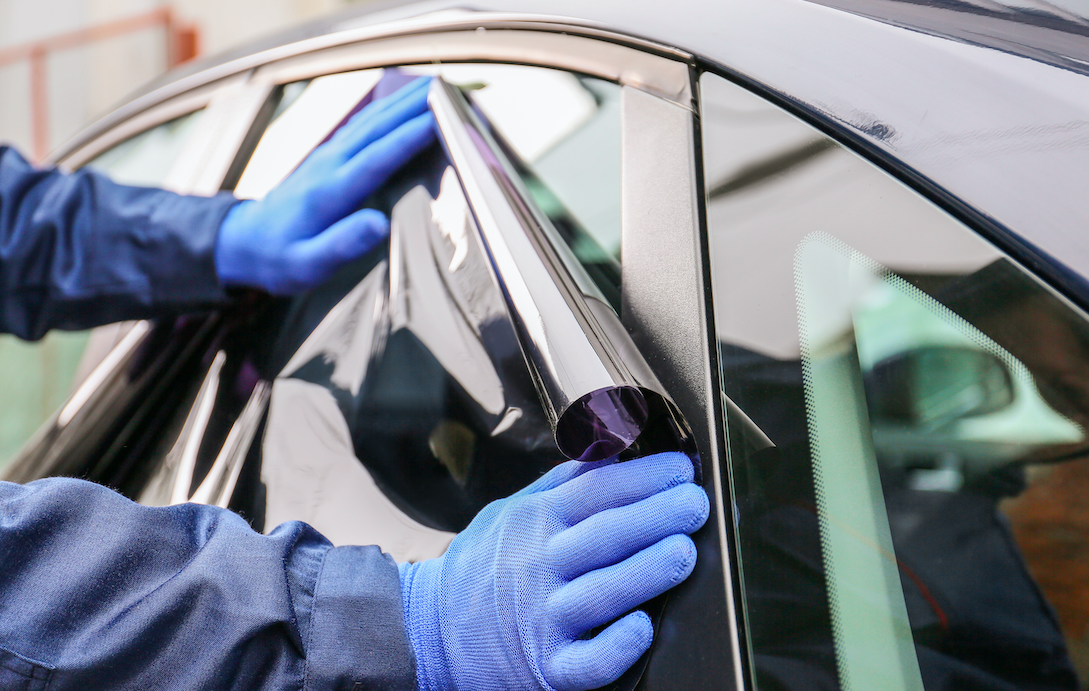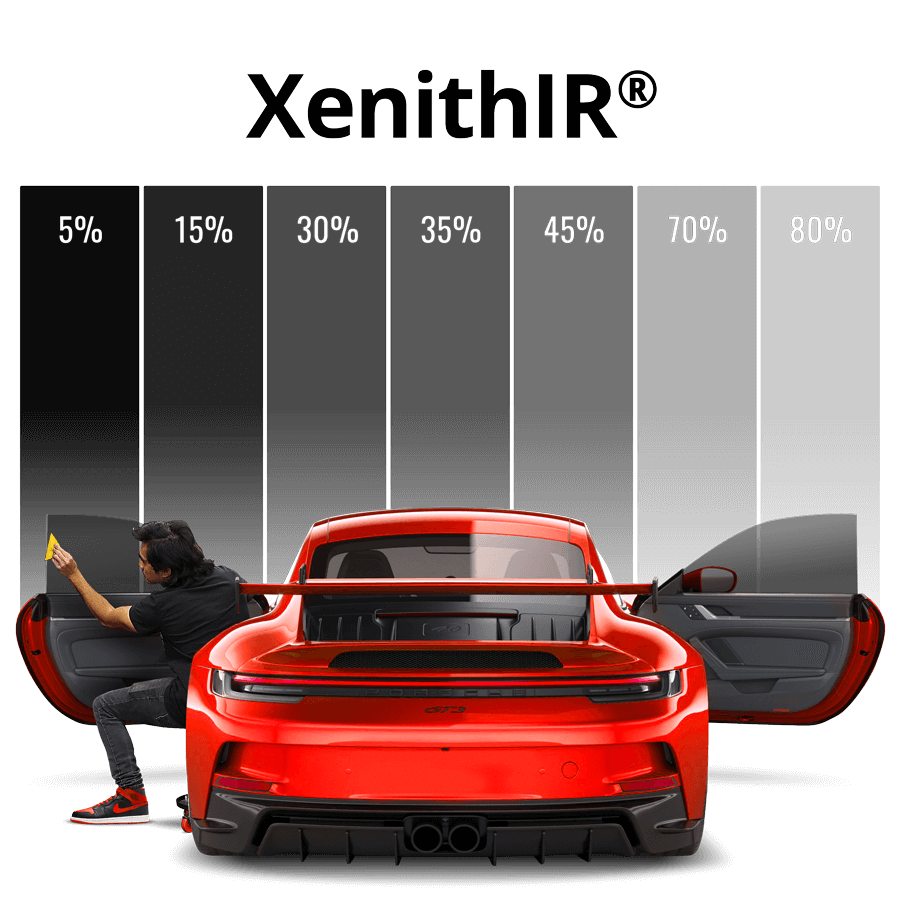A Comprehensive Guide to Provider Used With Home Window Tint Solutions
Window tinting has come to be a crucial service for both domestic and business setups. It uses numerous films developed to fulfill particular requirements, such as warm reduction and privacy improvement. Recognizing the range of alternatives readily available is crucial for making educated decisions. This guide will certainly discover the different sorts of window tinting movies, their advantages, and the installation procedure. It will likewise attend to legal factors to consider that might affect your selections. What aspects should one consider prior to proceeding?
Types of Window Tinting Films
Window tinting films can be found in different kinds, each designed to meet specific needs and preferences. The most usual types include colored, metalized, ceramic, and hybrid movies. Colored movies supply a standard degree of personal privacy and warm decrease, utilizing a dye layer to absorb heat. Metalized films incorporate little metallic bits, using improved warmth denial and glow reduction while likewise adding toughness. Ceramic films stick out for their remarkable efficiency, as they obstruct warmth without conflicting with signal transmission, making them suitable for electronic devices. Hybrid films integrate aspects of both dyed and metalized movies, offering a balance between visual appeal and useful advantages. Each film type varies concerning light transmission, UV defense, and service warranty choices, allowing customers to choose a solution that aligns with their certain requirements and style choices. Comprehending these choices is crucial for making an educated decision when thinking about home window tinting remedies.
Advantages of Residential Window Tinting
Residential home window tinting deals a series of advantages that improve both comfort and energy efficiency in homes. Among the main benefits is the decrease of warmth gain, which leads to lower power bills by lessening the reliance on a/c systems. In addition, home window tinting aids to block hazardous UV rays, shielding both citizens and home furnishings from sun damage and fading.Moreover, it boosts privacy without endangering natural light, enabling homeowners to enjoy their sights while maintaining spying eyes at bay. The application of home window movie also improves safety by holding shattered glass in area during accidents or storms, thus lowering injury risks.Furthermore, domestic window tinting can add to a much more cosmetically pleasing exterior, as numerous film choices are available to match different building styles. In general, these benefits make window tinting a important and functional financial investment for house owners looking for enhanced livability and energy performance.
Benefits of Business Home Window Tinting
While many organizations look for ways to boost their work setting, industrial home window tinting provides a wide range of advantages that can greatly enhance both worker convenience and operational effectiveness. One main benefit is the reduction of glow, which can greatly enhance productivity by enabling workers to work without distractions from rough sunshine. Additionally, window tinting can assist manage interior temperature levels, leading to lowered dependence on air conditioning and lower energy costs.Furthermore, colored windows provide UV security, securing employees and furnishings from dangerous rays that can trigger skin damage and discolor products. This defense not only adds to a healthier workplace however also lengthens the life of office insides. Inevitably, industrial home window tinting can enhance personal privacy, enabling companies to keep an expert appearance while reducing outside diversions. Generally, these advantages make business home window tinting a useful financial investment for companies intending to optimize their office.
The Window Tint Setup Refine
A successful window tint installment process includes a number of vital steps to ensure ideal results. The location and home windows must be thoroughly cleaned up to get rid of dust, grease, and any various other pollutants that might influence bond. Next, the color film is carefully measured and reduced to fit the specific dimensions of each window.Following this, the installer applies a solution to the glass surface area to permit repositioning of the movie before it sticks. The film is after that positioned onto the home window, seeing to it it is without creases and bubbles. Once located properly, a squeegee is utilized to get rid of excess water and air.Finally, the sides of the movie are trimmed for a neat coating, and the setup is inspected for high quality. Correct attention to these actions guarantees the longevity and efficiency of the home window color, boosting both aesthetic appeals and functionality.
Maintenance and Care for Your Home Window Tint
Exactly how can one assure the durability and look of window tint? Correct maintenance and treatment are necessary. Initially, it is recommended to wait at least 30 days after installment before cleaning the color to permit for proper attachment. Once this duration mores than, making use of a soft cloth or microfiber towel can prevent scratches while cleaning. Gentle, ammonia-free cleansers must be made use of to avoid harming the film.Regular inspections of the sides and surface can aid determine any bubbling or peeling early, permitting timely repair work. Prevent utilizing rough materials or rough chemicals that might weaken the tint. In addition, parking in shaded locations or utilizing sunshades can decrease UV exposure, further securing the tint's stability.
Legal Factors To Consider for Window Tinting
Lawful factors to consider for window tinting vary significantly throughout various states. Each state has certain guidelines pertaining to visible light transmission restrictions, which dictate just how much light can travel through tinted home windows. Furthermore, some states use medical exceptions, allowing people with particular problems to utilize darker colors than normally permitted.
Tinting Laws by State
While window tinting can boost an automobile's aesthetic appeals and provide added personal privacy, it is important for vehicle proprietors to recognize the varying guidelines that govern tinting across different states. Each state has its own certain laws relating to the permitted levels of color darkness, reflection, and the types of home windows that can be tinted. Some states permit darker tints on back windows but impose stricter restrictions on front side windows. In addition, certain states may require certain labels or certifications to validate compliance. Failing to follow these policies can lead to penalties or the need to get rid of the tint (Davinci of Michigan Window Tinting). Vehicle proprietors need to research their state's legislations before spending in home window tinting services.
Visible Light Transmission Purviews
Comprehending the noticeable light transmission (VLT) limits is important for anyone taking into consideration home window tinting. VLT describes the percentage of noticeable light that can pass with the tinted glass. Different states have varying guidelines concerning appropriate VLT levels, especially for different home windows in lorries. For circumstances, front windscreens frequently have stricter limitations contrasted to side and rear home windows. Breaking these guidelines can result in fines and the demand to eliminate non-compliant tinting. Consequently, it is necessary for individuals to investigate their state's details VLT laws before continuing with window tint installment. Conformity guarantees not only legal adherence however likewise security and visibility while driving, advertising a much safer setting for all roadway users.
Medical Exemptions for Tinting

Picking the Right Window Tinting Service
Picking the right window tinting service involves a cautious assessment of private tinting needs. It is necessary to examine various service options, guaranteeing they align with the preferred results. In addition, understanding the legal policies governing window tinting can assist prevent prospective concerns down the line.
Evaluating Tinting Requirements

Assessing Service Options

Comprehending Lawful Regulations
Before choosing a window tinting solution, people should understand the lawful laws governing tinting in their area, as these legislations can vary substantially in between states and towns. Each jurisdiction might enforce details constraints on the allowable tint darkness, reflective residential or commercial properties, and which windows can be tinted. For example, some states may permit darker tints on rear windows while prohibiting them on front windows. Furthermore, guidelines usually lay out the sorts of products that can be made use of and might require details labeling or qualification. Failure to adhere to these legislations can cause penalties or the demand to eliminate the tint. Subsequently, possible clients need to validate the legitimacy of their preferred tint and get in touch with professionals acquainted with local laws to ensure conformity.
Regularly Asked Concerns
For How Long Does Home Window Tinting Commonly Last?
The long life of window tinting normally ranges from five to ten years, depending upon aspects such as the quality of the movie, installment process, and ecological conditions. Normal upkeep can additionally influence its life expectancy substantially.
Can Home Window Tinting Be Gotten Rid Of Quickly?
The convenience of window color elimination depends upon the setup technique and sticky utilized. Commonly, professional services assure safer, cleaner removal, while DIY attempts might result in damages to the glass or adhesive residue.
Will Window Tinting Influence My Home's Resale Value?
Home window tinting can influence a home's resale worth positively or adversely. Potential purchasers may appreciate power savings and personal privacy, while others might watch it as an individual choice, impacting general allure and value of the home.
Are There Eco-Friendly Window Tinting Options Available?
The query about green window tinting options reveals that several suppliers currently provide items utilizing sustainable materials. These alternatives can minimize power intake and improve convenience while lining up with ecologically mindful practices in home improvement.
Can Home Window Tinting Aid With Energy Performance?
Home window tinting can significantly enhance power performance by decreasing heat gain and loss. This aids keep comfy interior temperature levels, potentially lowering heating & cooling costs, while also adding to a much more lasting setting via reduced energy consumption. The application of home window film also enhances security by holding destroyed Click This Link glass in location during tornados or accidents, consequently decreasing injury risks.Furthermore, domestic window tinting can contribute to a more aesthetically pleasing exterior, as numerous film alternatives are available to match various building designs. In addition, window tinting can aid regulate find out indoor temperatures, leading to lowered reliance on air conditioning and reduced energy costs.Furthermore, colored home windows offer UV protection, securing employees and home furnishings from damaging rays that can cause skin damages and fade materials. Some states enable darker tints on back home windows but enforce more stringent limitations on front side home windows. Before choosing a window tinting service, people must understand the lawful regulations governing tinting in their area, as these legislations can differ substantially between states and communities. Some states may permit darker colors on back home windows while prohibiting them on front windows.